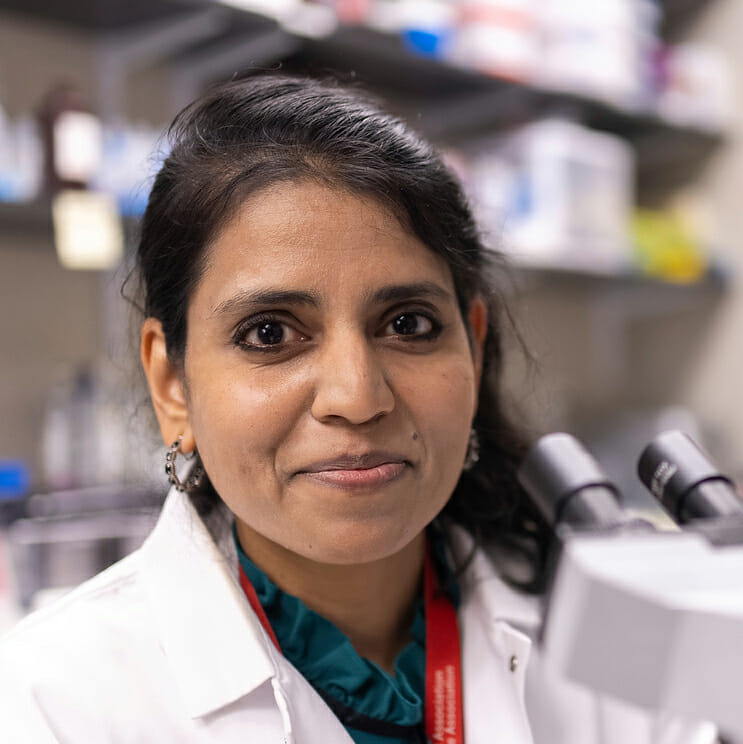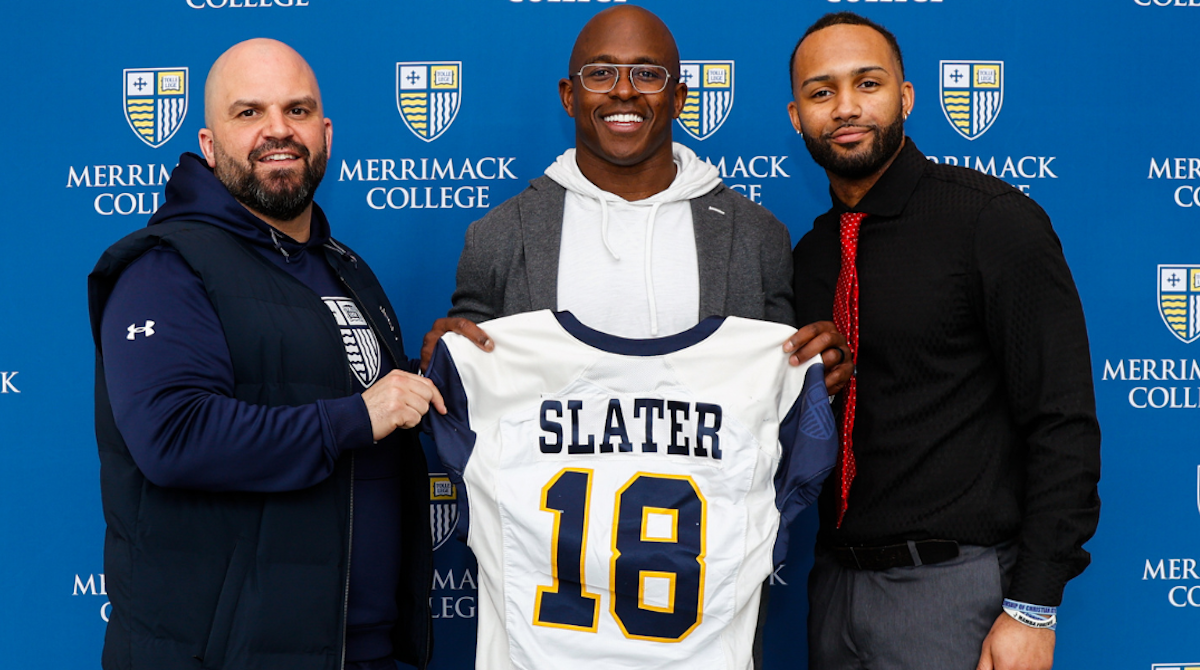The ReproDiscovery Lab, located in the Department of Nutrition and Public Health at Merrimack College, conducts epidemiologic research to advance our understanding of reproductive health conditions.

The ReproDiscovery Lab aims to deepen our understanding of gynecologic conditions, particularly endometriosis and polycystic ovary syndrome (PCOS) – two reproductive health conditions that have been traditionally under-studied and under-funded. The main goal of the ReproDiscovery Lab is to utilize questionnaire data and biological samples to advance our understanding of how to shorten the time to a diagnosis for these two conditions and how to improve patient outcomes, particularly in relation to life impacting pelvic pain among women with endometriosis. Additionally, the ReproDiscovery Lab aspires to reduce health disparities in relation to reproductive health by highlighting the barriers that patients of certain populations face related to diagnosis and treatment.
Established in 2024, the ReproDiscovery Lab is led by Amy Shafrir, Assistant Professor in Nutrition and Public Health at Merrimack College. The lab utilizes Dr. Shafrir’s expertise and past research experience in chronic disease epidemiology, biological markers of health and disease, and reproductive health and pelvic pain disorders. Multiple longitudinal cohort studies are utilized in the ReproDiscovery Lab research including the Women’s Health Study: from Adolescence to Adulthood and the Nurses’ Health Studies.
The ReproDiscovery Lab focuses on understanding:
The ReproDiscovery Lab currently has a National Institutes of Health R21 grant to investigate how nerve growth factors in the fluid of the pelvic cavity are related to persistent pelvic pain among participants with endometriosis. Through this research, we hope to identify biological markers, in addition to participant characteristics, that can be used to determine which endometriosis patients will continue to experience severe pelvic pain even after they have received endometriosis-related treatment.
Recently, the ReproDiscovery Lab has begun investigating health disparities in relation to endometriosis. Specifically, we have been conducting interviews with women with endometriosis across three different racial and ethnic groups to determine if there are differences in barriers to an endometriosis diagnosis across racial and ethnic groups. The aim of this research is to develop population-specific interventions for shortening the time to an endometriosis diagnosis.
Research within the ReproDiscovery Lab aims to better understand gynecologic conditions, particularly endometriosis and polycystic ovary syndrome (PCOS), including health disparities associated with these conditions, and to improve patient health outcomes.

“The R15 grant is very special because it is specifically for training undergraduate students. The overarching goal of the grant is to encourage smaller colleges like ours to get access to more NIH funding and have greater opportunities to train students at the undergraduate level.”
- Leena Bharath, Principal Investigator, MitoCure Lab
ReproDiscovery Lab
Merrimack College
Dept. of Nutrition & Public Health
O’Reilly Hall 415
315 Turnpike St.
North Andover, MA 01845
Phone: 978-837-3526
Email
MitoCure Lab
Merrimack College
Dept. of Nutrition & Public Health
O’Reilly Hall 406
315 Turnpike St.
North Andover, MA 01845
Phone: 978-837-3526
Email
The former captain for the New England Patriots and three-time Super Bowl champion was the keynote speaker for the College’s Unity in Diversity Days.
